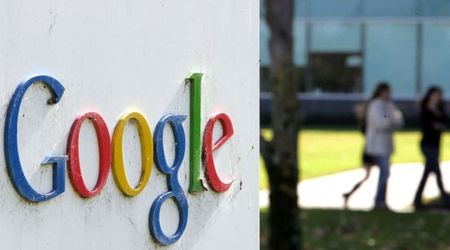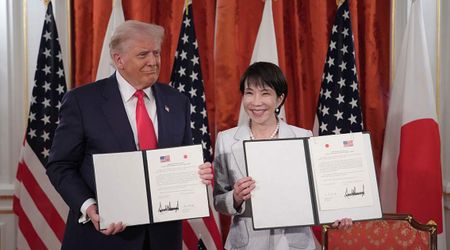Shark Tank judges 'hated' this entrepreneur's idea. He still ended up with a $50,000 offer anyway

The holiday season is associated with snow and while people decorate their homes with Christmas trees and lights, some snow inside the house might be the icing on the cake. Although indoor snow may sound like an exciting idea to many, Jonathan Dusing, the co-founder and CEO of Snow in Seconds, got a cold shoulder from investors on "Shark Tank."

Working up a Christmas Miracle?
Dusing who comes from "the frozen Tundra" region of Minnesota sought $50,000 in exchange for a 10% equity stake in the company. He explained that his company aims to bring the joy of snow 'indoors' to those who live in parts where it doesn't get so cold during the holiday season.

According to its official website, Snow in Seconds offers products that make instant snow at home using dry, powdered polymers that only need water to turn into snow. These polymers mimic the exact fluffy feeling of the real deal and they even feel surprisingly cold.
That one time we scored a deal with the greatest @BarbaraCorcoran and potentially impressed the likes of @mcuban What a blast it was to be on Shark Tank… even if Mr. Wonderful said we were “at the top of his list” (of deals he hates) . Gotta love @kevinolearytv #sharktank… pic.twitter.com/jkMMyGkSsF
— Snow in Seconds (@snowinseconds) December 13, 2023
On the FAQs section of its website, the firm explains that due to the constant evaporation of water, the fluffy polymers regulate the temperature and once they are dry, they can be packaged and used again. On the show, Dusing explained that the money and mentorship of the investors would go into expanding the product's retail distribution while sharing revenue and profit figures.
Despite the great product and decent earnings, investors did not seem too keen to finance the venture. In fact, Tori Greiner, Kevin O’Leary, and Mark Cuban withdrew in a flash immediately while Daymond John took some time before following suit. “It is so seasonal and so specific,” Greiner said, citing that it wasn't just broad enough for her.
O’Leary had some harsher words. He said, “Sometimes a deal comes in that I really, really hate and this is top of the list for this season," according to CNBC. He further added that the sales figures were irrelevant as the business only catered to a small customer base and the revenue growth has been significantly slow over the past 15 years. “I hate the fact that it distracts you from a real business,” O’Leary said. “This deal sucks.”

“I hate the fact that it distracts you from a real business,” O’Leary concluded. The only investor that made an offer was Barbara Corcoran. While she too expressed some concerns, she offered $50,000 for one-third of the company. Despite mentioning that $40,000 in profits is not exciting, she said "The business has great upside potential.”
Dusing tried to talk Corcoran down to 25% but ultimately accepted the offer. As Dusing and Corcoran shook on the deal, O'Leary wasn't so happy. “Jon, the fact that you got a deal is a Christmas miracle,” he said.

While it is yet to be seen if the Sharks missed out on a great prospect, there's one company whose potential they failed to recognize. Before it snowed on Shark Tank, the investors heard a pitch from Jaime Siminoff, the founder of Doorbot (now Ring). He was asking for $700,000 for a 10% stake in the company, at a valuation $7 million.
Much like Snow in Seconds, the investors weren't interested in the product which was a video doorbell. The offer only resonated with O'Leary who offered to provide the $700,000 but as a loan. Siminoff refused to take the offer and walked away empty handed.
However, capatalizing on the new found fame, Siminoff rebranded the company to 'Ring' and attracted massive funds from investors including Shaquille O'Neal.
In 2013, Jamie Siminoff pitched his smart doorbell, DoorBot, on "Shark Tank" but faced rejection. However, the product, rebranded as Ring, was later acquired by Amazon for over $1 billion. He was later invited back to "Shark Tank" as a guest judge. pic.twitter.com/bG9oRB6NQK
— Historic Vids (@historyinmemes) April 6, 2024
It was finally bought by Amazon in 2018 for over $1 billion, which was a testament to the company's success, something the 'sharks' never saw coming.























